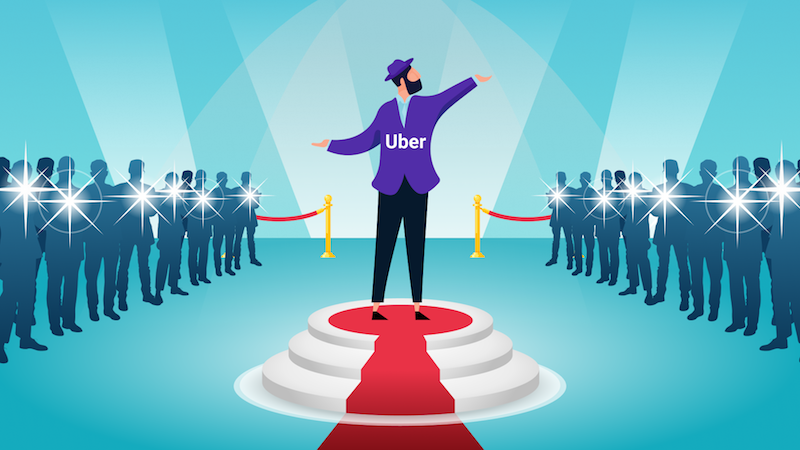SEO has been that marketing term for all time. Let’s be real: if you still think stuffing keywords will get your brand noticed (or chasing Google rankings), then you need to wake up and smell the coffee. In 2025, turn your head slowly around—things are changing fast. Chatbots, like ChatGPT and Google Gemini, aren’t simply answering questions; they’re becoming the new front door to how people discover brands.
Back to the shoe example. You want a quick recommendation for eco-friendly shoes. You no longer need to sift through Google search results—you can simply ask a chatbot, which quickly spits out answers, brand suggestions, and even personalized advice, all in a friendly conversation. Now that’s a game changer for the business.
So, if you are about to jump into an SEO course in India, good for you! But now you also have to start looking to understand AI’s role in transforming customer journeys and brand visibility. Google knows it too: they’ve just released significant AI upgrades and investments to keep pace with how their products have had to adapt.
In this blog, we’ll consider how AI chatbots are not simply augmenting, they’re re-writing the SEO rulebook.
From Search Engines to Conversational Engines
Think about how you usually find stuff online. You probably type a question or a few keywords into Google, scroll through a bunch of links, and pick one that looks promising. That’s been the way for years. But in 2025, things aren’t quite like that anymore. Now, instead of just searching, people are having actual conversations with AI chatbots.
These chatbots—like ChatGPT or Google’s latest AI—don’t just spit out a list of websites. They listen to what you’re really asking, get the context, and give you a direct answer. Say you want to know the best project management tool for your small business. Instead of hunting through reviews and comparisons, you just ask the chatbot, and it’ll suggest a few options tailored just for you.
This change is huge for brands. A recent Gartner report found that by the end of 2025, around 70% of all customer interactions will be handled by AI chatbots. That’s a big jump from just a few years ago. What this means is, if your brand isn’t showing up in those AI conversations, you’re missing out on a lot of potential customers.
So, it’s not just about getting your website to rank high anymore. You’ve got to make sure your brand speaks the language of AI—help chatbots understand who you are and why you matter. The brands doing this now are already getting noticed more and building better connections with customers.
Source: https://www.gartner.com/en/topics/generative-ai?utm_source=chatgpt.com
AI Chatbots as Brand Representatives
AI chatbots have evolved a lot. Instead of just answering basic questions or fixing basic bugs, they are starting to emulate brand representation—similar to a pleasant person customers can talk to at any time. This prescriptive set of conversations, responses, and offer suggestions intentionally designed to mimic the branded experience constructs a more personalized conversational experience.
For instance, consider Duolingo’s AI tutor. It’s not simply providing users with grammar exercises or vocabulary tests. This chatbot has users engaged through friendly conversation and encouraging continued learning. Duolingo is also very clever in how it talks about premium features, making the mention of premium services feel more like a suggestion than a sales pitch. There’s also the AI stylist by H&M. It does more than suggest clothing—it knows what trending and what is in-stock. This makes for up-to-date and practical news, similar to a personalized shopping assistant.
What makes these chatbots really work is that brands train them to speak in their own “voice.” So when you chat with the bot, it feels like you’re talking to the brand itself—not some generic robot. This means chatbots are no longer just for fixing problems. They’re actively shaping how customers feel about the brand. Forbes even points out that chatbots are shifting from just support roles to actually helping build the brand’s identity and marketing in a big way.

Customer Journeys Through Chatbots
Let’s face it – no one likes jumping from app to app to get something done. Whether you are ordering food, purchasing skincare, or getting product recommendations, we all want speed and ease. Chatbots are really making this happen. They’re not just answering questions anymore; they’re running the entire show — from start to finish — inside one simple conversation.
What used to take ten steps and three browser tabs now takes just one smooth interaction. And it’s all because today’s bots are tightly connected to everything behind the scenes — your payment info, the brand’s inventory, even your past orders. That’s not just helpful, it’s kind of game-changing.
Here’s what that looks like in real life:
- Domino’s Pizza: You don’t need to open their app or call anyone. Just message their chatbot, pick your pizza, customize the toppings, place the order, and pay — all without leaving the chat. It’s pizza on autopilot.
- Nykaa: Their AI beauty assistant is more like your personal skincare buddy. It looks at your skin type, checks your local weather, and suggests what you actually need. And yes, it checks what’s in stock too — no more falling in love with products that are sold out.
This kind of experience feels natural — like talking to a store rep who already knows what you like. People don’t need to “Google” for answers anymore; they just open the chat and get things done. It’s faster, easier, and feels less like shopping and more like solving a problem.
It’s not about the bot being clever. It’s about removing the hassle — and that’s what today’s customers value most.
Data, Privacy & Trust in AI-Led Branding
We’ve reached a point where AI doesn’t just help you shop — it helps you decide what to want. That’s powerful. And a little scary.
People are starting to notice when suggestions feel a bit too perfect. Was that moisturizer really right for my skin, or did someone pay to put it in front of me? Did the chatbot remember my preferences, or is it tracking more than I realize?
That’s why brands can’t just rely on polished AI experiences — they have to be transparent. Transparency about how bots function, what data they’re built off of, and that a product recommendation is sponsored or, not will generate trust. If brands jump over that, they are asking to lose people.
It is not only an ethical issue — it is a survival issue for brands. The World Economic Forum argues that trust in AI-powered branding will determine who maintains market relevance. If a brand’s AI feels deceptive, they aren’t going to stick around!
The most forward-thinking brands in 2025 will realize this: privacy and honesty are the experience.
SEO Isn’t Dead, It’s Evolving with AI
It is evident that chatbots are not a trend — they are changing how we discover and connect with brands every single day. SEO is still relevant, but if you want to remain visible, you need to think beyond SEO. The merger of a “traditional search” approach and a “conversational technologies” approach is where it can get exciting! If you are serious about keeping pace, taking new skills through a digital marketing course in Mumbai would be a wise investment. Learning how to embrace these changes rather than resist them is what will place you ahead of the game.















